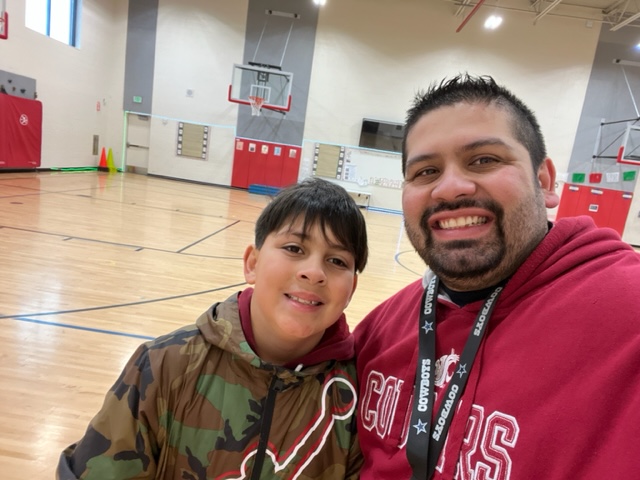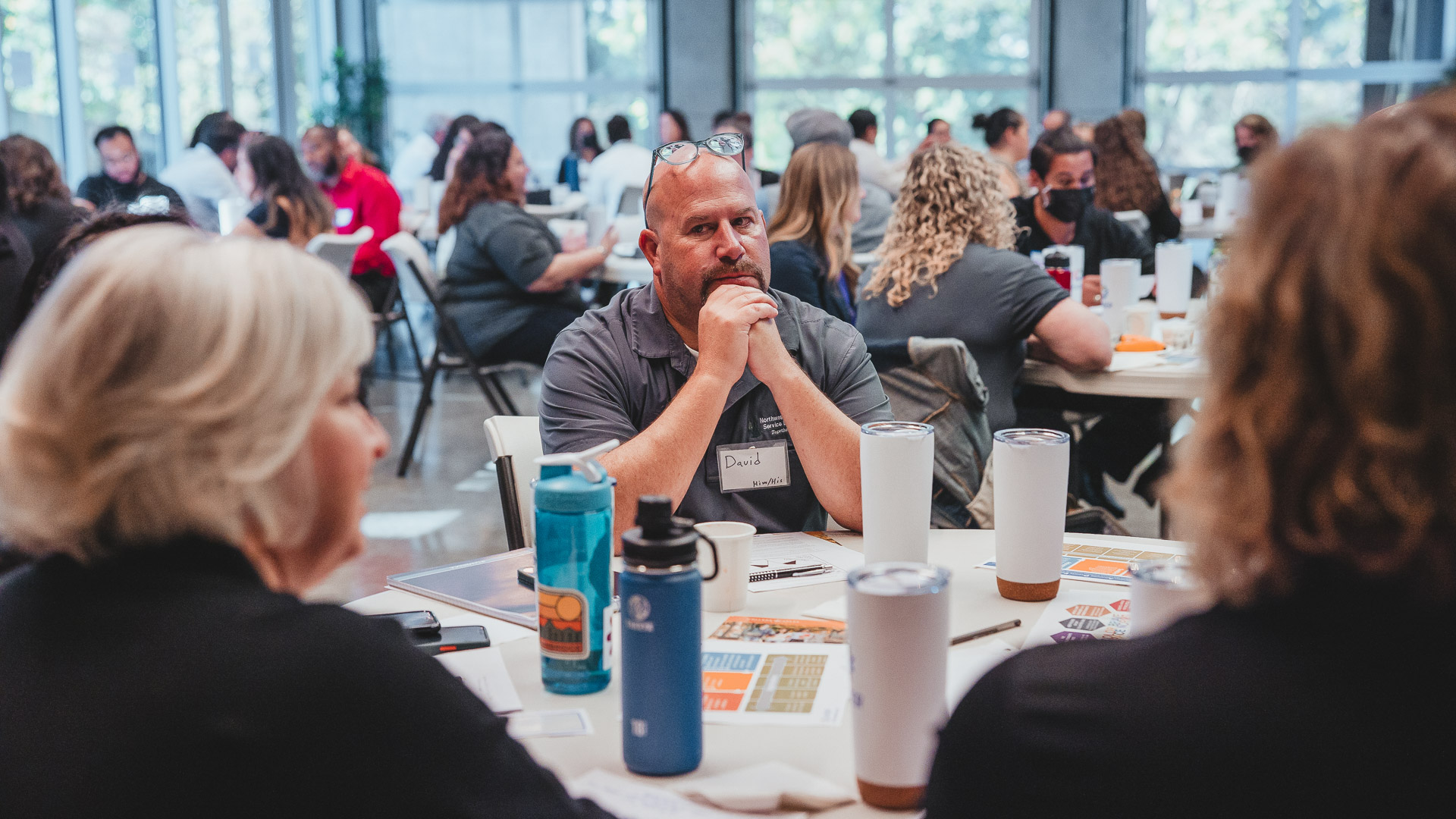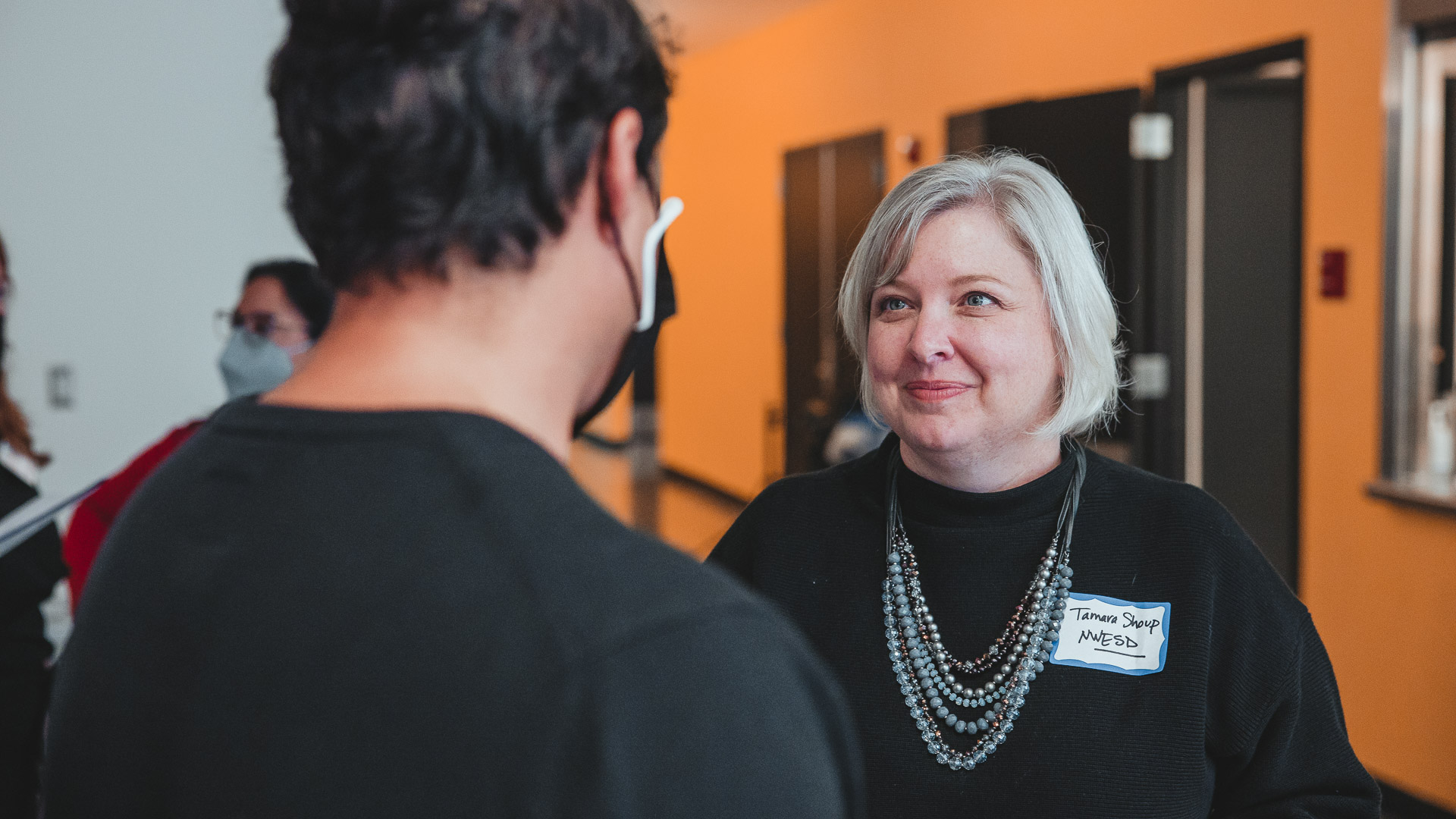
“When I started with the district as a kindergarten teacher, I was one of a few Spanish-speaking educators in the building,” says Adan Rodriguez, a Mount Vernon School District teacher. “I’d get pulled from the classroom into the front office to translate. That was a huge red flag for me, and not how we want to serve our community best. My experience sparked my interest in equity work.”
Now, ten years later, Rodriguez is a member of the ESD 189 LEADER Initiative core team, one of many working to diversify the district’s educator workforce. The district comes to this work with solid partnerships in place with its Maestro Program. The grow-your-own program began in 2012 and involves teachers, staff and administrators at the Mount Vernon and Burlington-Edison school districts, Western Washington University’s Woodring College of Education, and Skagit Valley College, working to make the path from high school to teacher certification attainable for students from the community and representative of the majority Latinx student body.
Other, more recent, efforts include a mentors program and affinity groups for educators of color. “Mount Vernon School District is intentionally committed to racial equity and how that guides and informs our work,” says Mount Vernon School District Director of Personnel and Human Resources Jon Ronngren, another member of the LEADER core team. “I see Human Resources as ground zero in this effort. Related to hiring, we are working through pretty articulated steps in improving our practices.” He’s grateful to have Rodriguez supporting this work to reduce barriers by looking at where and how we post jobs, ensuring job descriptions and interview questions are consistent across the district and more.


Rodriguez brings many levels of lived experience and insights to this process. After his initial experience as one of only a few Spanish speakers in a school building, Rodriguez moved to the district’s only dual language school, where he taught third grade. After five years, he switched to his current role teaching PE and became the school’s equity lead. “That created a leadership mindset for me that goes back to the students,” he says, noting the impact of teachers that students can identify with and look up to. “When students return to visit, they wanted to talk to and interact with me. They see themselves in me.” It’s also why he’s now serving as an equity facilitator for the district and is in a degree program to gain qualifications to become an elementary school administrator.
Still, none of the people involved have illusions about the challenges in maintaining momentum and recognizing and addressing ongoing barriers. Also, the problem of budget cuts threatens the positions of the school’s newest hires. “The past two years with the pandemic have slowed this work,” says Ronngren. “We have to think creatively, make reductions and then look at ways to bring people back, keeping them connected to the district in some capacity.”
In addition to being an equity lead, part of the LEADER effort and supporting the hiring audit, Rodriguez also serves as a mentor to a student who has gone through the MAESTRO’s program. The young woman told him that going through post-secondary school was fine but that there were no jobs to apply for when she got out. “We can do better at having a plan for keeping people connected after they graduate when we don’t have positions for them,” says Rodriguez. “One idea would be to have them come in as substitutes, which we especially need right now.”
Another growth area for ESD 189 are the connections in the community. Rodriguez talks about the need to honor the wisdom that community members bring. He also wants to replace assumptions with knowledge and understanding about
why people may not be connecting with the school. “People think community members don’t care, but they don’t come for a reason,” says Rodriguez. “Maybe it’s too intimidating. How do we involve them, sharing the great things they can do that we can bring into our curriculum, creating partnerships that expand our affinity groups?” This work takes time and consistency. Rodriguez describes visiting one family, and it taking six years before a student’s mother felt comfortable talking instead of having her daughter speak.
At the same time, Rodriguez would like to see faster progress in eliminating divisiveness and the fact that some people feel threatened by this progress. He sees the keys to success including continued leadership at the top, continual education, and internal growth so that more people become champions and allies, understanding why this work toward equity and a more diverse workforce is critical for students and communities. “Until everyone educates themselves, this will continue to be a need,” he says. “I’ve been in recent interviews, and when I put my equity lens on, if I hadn’t been in the room, then critical things wouldn’t have been said. Having a diverse interview team is a good thing.”
Rodriguez’s ultimate vision of the legacy of this work is for it to come naturally to people. “My vision is to get to that point where we create a call-in culture versus a call-out culture,” he says. “I would like to see everyone being comfortable with difficult conversations, staff representative of the student body, and community involvement because we’ve created a welcoming environment for everyone to come in and share their thoughts.”
Find out how you can Get Involved, explore our virtual Events, or sign up below for news updates about the LEADER initiative.
Get the latest — subscribe to our electronic newsletter.
By signing up you agree to receive occasional communications from College Spark Washington. You can unsubscribe at any time. We respect your right to privacy. Please review our Privacy Policy
